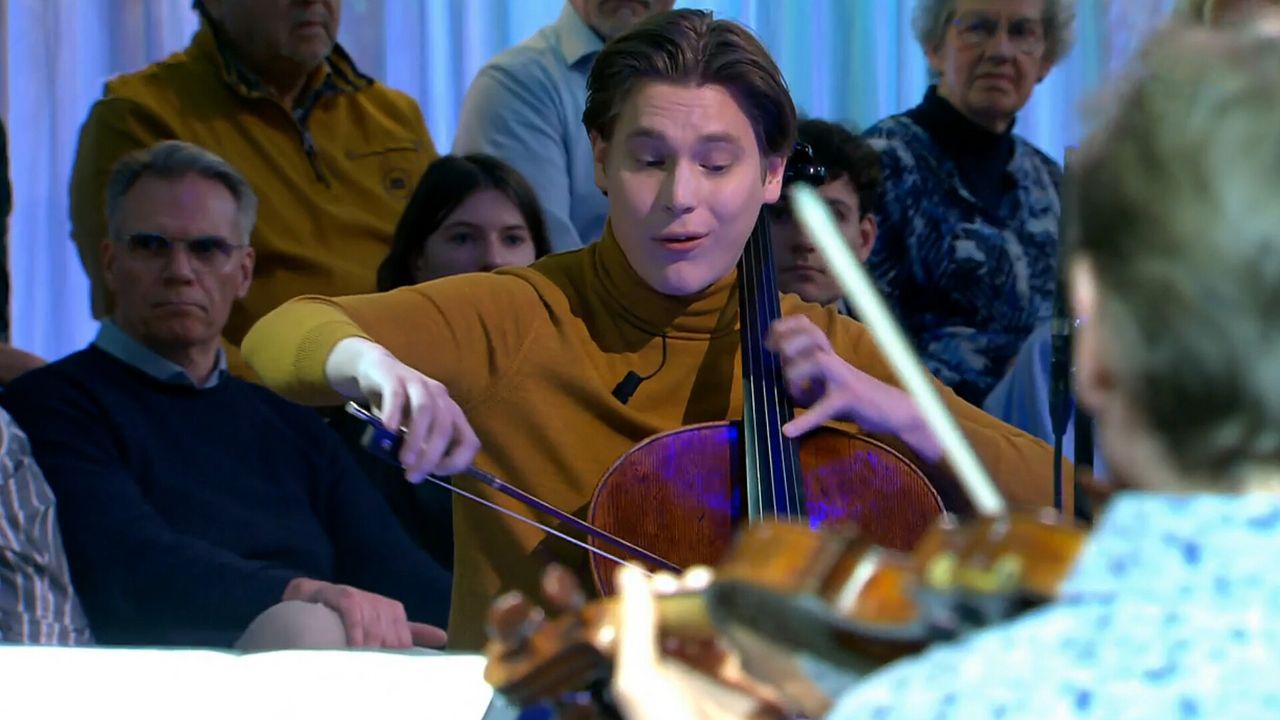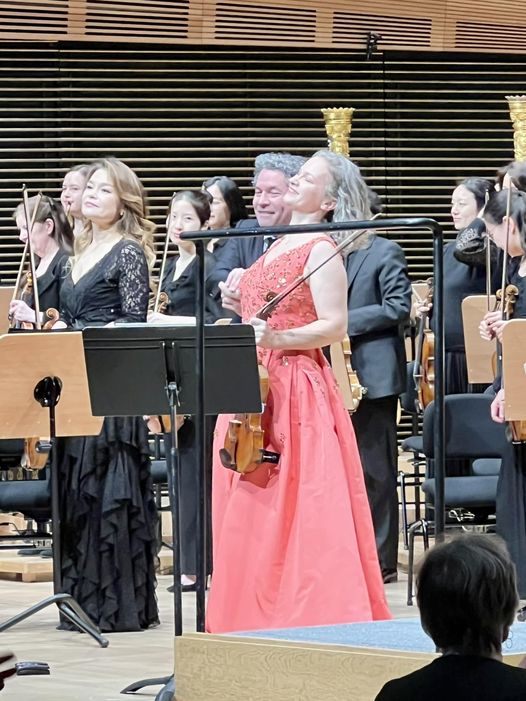New music roars in Venice Biennale, but the Golden Lion stumbles
NewsLucia Ronchetti’s revival of Venice Biennale Musica opened last night with Jules Verne, an operatic happening by Giorgio Battistelli at the Teatro La Fenice. Shirley Apthorp has the first review, exclusively for Slipped Disc:
Captain Nemo stands in a giant fish-tank, making sloshy noises with his feet, playing the Marimba. Professor Lidenbrock sprinkles gravel from his pockets on a bass drum, creating a pitter-patter sound effect. Doctor Ferguson, holding a red balloon, pulls on a chain.
Three literary characters have assembled on the stage of La Fenice, brought to life for the occasion of Giorgio Battistelli’s Jules Verne. They discuss their planned journeys (to the centre of the Earth, to the bottom of the ocean, and across African skies) in a mishmash of Italian and French, singing and playing percussion instruments with child-like glee.
Battistelli wins this year’s Golden Lion Lifetime Achievement Award at this year’s Venice Music Biennale, a lavish 11-day Festival featuring new music, music theatre, talks and discussions, and a red balloon.
Jules Verne, here receiving its Italian premiere, dates back to 1987, and shows a young Battistelli pushing at the established boundaries of musical genres. It is more than a concert, less than an opera – the composer called it +Instrumental Theatre+. The preposterous acts demanded of the performers include the firing of a canon, the hurling of bricks, and (in the case of Nemo) total immersion in water.
Antonio Caggiano, Rodolfo Rossi and Gianluca Ruggeri, of Ars Ludi, perform the roles of Verne’s heroes, reciting large chunks of text (flawlessly remembered), playing various instruments with varying degrees of skill, and – after a fashion – singing. Ars Ludi receives this year’s Silver Lion.
Jules Verne is more Happening than Opera, and demands truck-loads of suspended disbelief for its rag-tag storyline and infantile caprices. The setting helps – La Fenice’s exuberant gold detailing framing the stage’s odd array of percussive objects, poetically lit by Angelo Linzalata.
This year’s Music Biennale, the second under the direction of composer Lucia Ronchetti, focusses on experimental music theatre, and will feature a number of world premieres. As the city where so much music theatre was born, Venice has always been home to invention and the redefinition of boundaries. And it has always confidently held both the new and the old, making this homage to the Battistelli of yesteryear a fitting tribute.
Today, it is difficult to take Battistelli’s early experimentation seriously. Or lightly. Though the piece intends to be humorous, nobody laughs. Perhaps it is the text: “All those bloodthirsty and cannibalistic blacks seemed like as many crazed apes,” sings Fergusson. Verne wrote those words in 1863, at a time when European nations were committing colonial atrocities that totally eclipsed any indigenous violence. Why include it now?
Still, Batistelli stands alone for his marvellous eccentricity – he put bricklayers and pasta makers on stage for his 1981 Experimentum Mundi, and his 2008 Vijidaes was scored for three choirs and 66 cows.
The Venice Music Biennale runs until 25 September.






Oh! How confronting and radical!